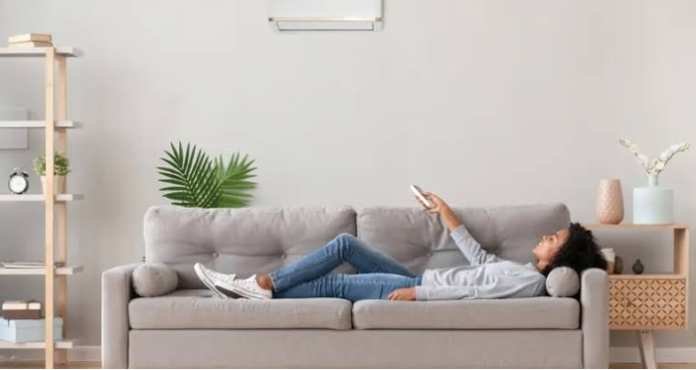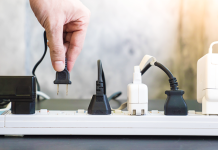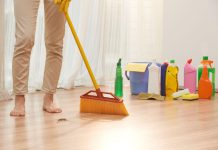There are only a few people who recognize the importance of indoor air quality. The average American spends a higher proportion of their time indoors, according to the Environmental Protection Agency (EPA). If we aren’t outside taking in the fresh air, our indoor air quality needs to be enhanced.
When presenting your rental property to a potential tenant, you don’t want your guests to feel uneasy and think your place is unpleasant and stuffy. This is a sign that no fresh and healthy indoor air quality circulates.
Renters with allergies may find that poor air quality makes breathing difficult or unpleasant. That’s why you need to take precautions to preserve adequate ventilation and limit the use of chemical products. This article is for you if you’re a renter or landlord pondering how to improve indoor air quality. We’ll discuss some essential tips on improving air quality in your rental property. Let’s get the ball rolling:
Importance of Good Air Quality in Rentals
1. Breathing
Breathing is an unconsciously performed action. Shallow breathing puts a lot of strain on your body, particularly your heart and lungs, making simply climbing a flight of stairs extremely exhausting. You should take deep, relaxed breaths with good air quality to provide your body with the oxygen it requires.
2. Good Sleep
Respiratory irritation and airborne allergens disrupt sleep quality, leading to breathing issues such as sleep apnea. You would not have to worry about breathing problems if you had good indoor air and would wake up feeling refreshed.
3. Improved Moisture Regulation
Moisture control can help keep mold and germs away while increasing comfort. Dry air can cause skin irritation and nosebleeds. In contrast, a too-moist atmosphere can be uncomfortable and damage home furniture and structures. The ideal relative humidity for residential properties is between 40 and 50 percent, though this varies according to season and location.
4. Lower energy costs
The procedures required to manage your air quality, improve airflow and ventilation, and control humidity and carbon dioxide levels all contribute to optimizing your HVAC system. They also ensure that it works smoothly to keep your home healthy. Efficiency invariably results in lower utility bills.
Your HVAC system filters out pollutants before they are circulated throughout your rental home. Your HVAC system may not be properly filtering the air. In that case, indoor air quality may be worse than outdoor air quality. Also, it is vital to learn how to change an HVAC filter. However, landlords and tenants should hire a professional property manager to assist with preventative maintenance.
How to Improve Air Quality in a Rental Home
1. Open the Windows
It is critical to allow adequate fresh air into the house, which is cheap and straightforward. When it’s warm outside, open your windows and doors sometimes to improve airflow. While you eliminate toxic pollutants, you can bring in clean air.
Opening windows might help you get your day started right. There may be better options than opening windows if you have severe weather or local pollution. Another strategy is to use fans to ventilate the space. They will help with air circulation and, if you can open a window, will speed it up gently.
2. Dusting Frequently
If you have respiratory, sinus, or allergy issues, hay fever, or other allergy-related symptoms, using the appropriate cleaning procedures will help you stay on top of dust. Regularly using a moist, clean cloth to dust and quickly vacuuming afterward can prevent you from sneezing and sniffling and keep your home looking its best.
Cleaning and dusting may be made much easier by keeping a consistently tidy and clutter-free home. It also helps you open up hidden hotspots of dust. It’s important to put quality over quantity on furniture and to put smaller items in baskets or drawers where they won’t accumulate dust.
3. Add Plants to your Home
Adding plants to your home can naturally improve the quality of the air inside for the price of a bit of watering a few times per week. With plants as decor, your property would look fantastic. They also produce a tranquil ambiance by bringing a touch of nature indoors.
Indoor plants enhance the quality of indoor air. This is because plants can emit oxygen and absorb carbon dioxide, improving air quality. Even though scientists are still unsure of plants’ actual level of effectiveness, there may be some benefits.
Several researchers claim that choosing big, leafy plants with lots of surface area is the key to improving air quality. English ivy and snake plants are among the most remarkable plants for purifying the air in space. This is because you can use them to remove formaldehyde, benzene, and ammonia from the air surrounding them.
4. Avoid Toxic Chemicals
Volatile organic compounds (VOCs) are present in numerous products, from the cleaning items under your sink to your aerosol hair spray. In addition to helping to enhance indoor air quality, reducing the number of VOCs in your home will also make it more conducive. Because so many consumers make informed decisions about the items they buy, it’s now easier to obtain ecologically friendly cleaning and cosmetic products.
Making wise choices will allow your family to breathe cleaner air by removing fewer pollutants. While completely removing VOCs might be unnecessary and burdensome, you have plenty of good options to keep your home healthy.
Conclusion
The air quality in your home has a direct impact on your health. Even more significant health problems might result from pollution from risky sources like smoke and lead dust. It may lead to allergies, asthma episodes, and breathing problems.
You can quickly lower indoor pollution with a few easy home improvements, benefiting your health and energy efficiency. Know the different safety precautions you may take to safeguard your home. By doing this, you will prevent the spread of toxins and help preserve cleaner indoor air.




